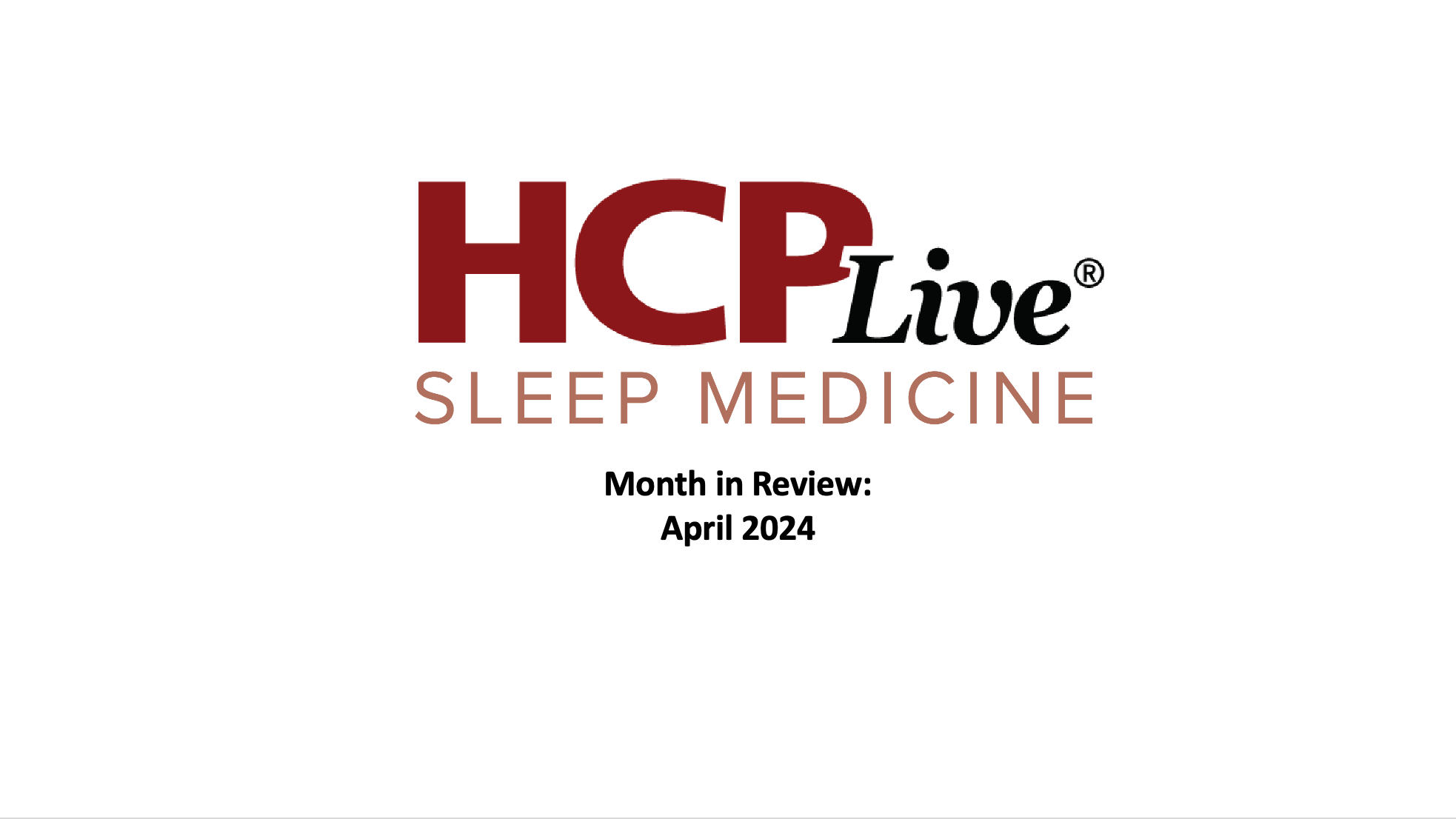News
Article
Sleep Month in Review: April 2024
Author(s):
This sleep month in review features positive pipeline updates and treatments for improved sleep quality.

March may have been buzzing with sleep content with the daylight savings time transition and it being sleep awareness month, but April was a slower month for sleep news, napping a little bit extra. Nonetheless, certain studies outshined the rest as the most popular sleep pieces.
This month in review features articles on topline phase 3 results, how a treatment can improve the sleep quality of patients with psoriasis, and how patients with a greater BMI have lower odds of responding to a particular treatment for obstructive sleep apnea (OSA).
Promising Pipeline Update
Tirzepatide Shows Benefit in Obstructive Sleep Apnea, SURMOUNT-OSA Trial
Eli Lilly and Company announced tirzepatide (Zepbound) at 10 mg or 15 mg dose significantly reduced apnea-hypopnea index (AHI), compared to placebo therapy. The company plans on using the topline results of this phase 3 SURMOUNT-OSA trial program, a multi-center, randomized, double-blind, parallel, placebo-master protocol trial consisting of 2 studies, to submit a mid-year application for approval in moderate-to-severe OSA and obesity.
“…tirzepatide has the potential to be the first pharmaceutical treatment for the underlying disease,” said Jeff Emmick, MD, PhD, senior vice president, product development at Eli Lilly and Company.
Helpful Treatment for Sleep in Patients with Psoriasis
Sleep of Psoriasis Patients Improves with Intensive Topical Treatment
Intensive topical treatment does more than curb an itchy sensation for patients with psoriasis or atopic dermatitis. It improves sleep quality after only 2 weeks, a new study found.
Dermatologic conditions are linked to sleep disorders as skin irritation may make someone struggle to fall or stay in a deep sleep. A 2-week intensive topical therapy, which included basic care and anti-inflammatory topicals such as class II – III steroids, brought significant improvements in deep sleep and REM sleep—more so for patients with atopic dermatitis than psoriasis. Patients also have significantly reduced insomnia severity and daytime sleepiness.
How Sleep Disorders Affect Children
Children with Sleep Disorders Have Double the Odds of Increased Health Care Usage
Children with both a chronic medical condition and a specific sleep disorder had nearly double the odds of having increased health care usage compared to children with a chronic medical condition but no sleep disorder, a recent study found. Investigators noted the odds were only increased for the sleep disorders of sleep-disordered breathing, insomnia, and circadian rhythm sleep disorder.
Children were more likely to have greater health care usage if they had ≥ 2 chronic medical conditions, if they were White instead of Black or Hispanic, and if they had asthma, respiratory disorders, prematurity, neurologic disorders, or mood disorders.
BMI Impacting OSA Treatment
Patients with BMI Over 32 Respond Less to Hypoglossal Nerve Stimulation for OSA
A study found patients with a body mass index (BMI) of 32 to 35 have 75% lower odds of responding to hypoglossal nerve stimulation (HGNS) for OSA compared to patients with a BMI of ≤ 32. Originally, HGNS was only approved to treat OSA in people with a BMI in a healthy range (18.5 – 24.9), but in recent years it was extended to severely obese patients with BMIs ≥ 40. Despite the goal to increase access to the therapy, the new data revealed the therapy’s effectiveness reduces significantly with an increased BMI.
“For every unit of BMI increase over 32, the odds of successful treatment decrease by about 17%,” said investigator Eric C. Landsness, MD, PhD, from Washington University.





